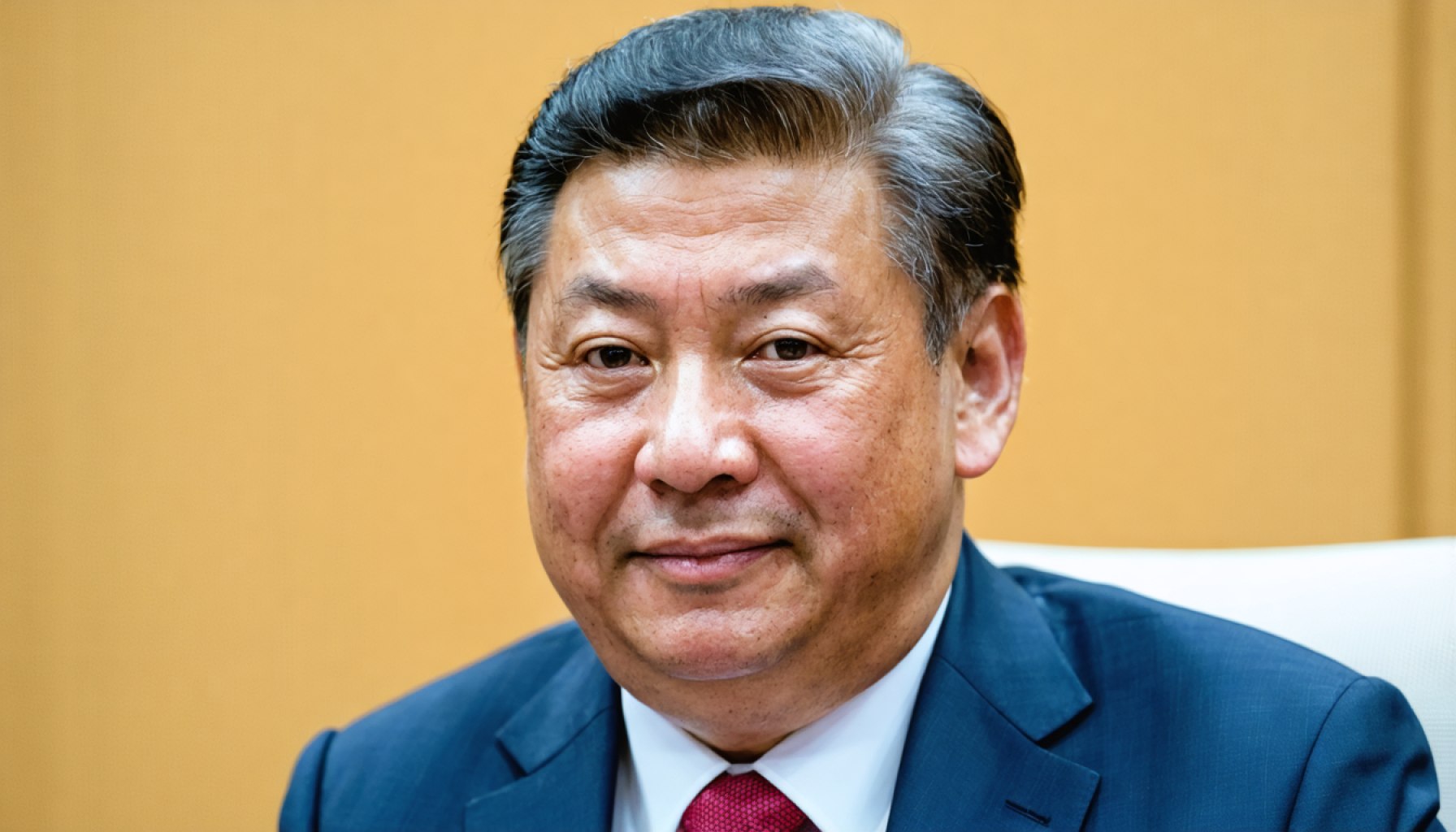- Jiang Chaoliang, Deputy Director of the Agriculture and Rural Affairs Committee of the National People’s Congress, is under a severe disciplinary investigation by the Central Commission for Discipline Inspection.
- Jiang has held influential positions, including Governor of Jilin and Party Secretary of Hubei Province, involved in economic strategies and party directives.
- The investigation highlights China’s ongoing efforts to combat corruption within its political ranks, emphasizing that no one is above scrutiny.
- This serves as a reminder of the importance of integrity in governance and sends a cautionary message to those in power.
- The world observes closely as Jiang faces potential consequences, underlining the significance of accountability in leadership.
Within the hallowed corridors of Chinese governance, where loyalty and power often intertwine, a storm now brews. An announcement recently revealed that Jiang Chaoliang, a man who has stalked the halls of political power across pivotal Chinese provinces, is under intense scrutiny. Jiang, born in August of 1957, currently serves as the Deputy Director of the Agriculture and Rural Affairs Committee of the National People’s Congress. However, he is now at the center of a severe disciplinary investigation led by the country’s primary anti-corruption watchdog, the Central Commission for Discipline Inspection.
Jiang’s career trajectory has seen him ascend to commanding heights, from his tenure as Governor of Jilin to his role as the Party Secretary of Hubei Province. These experiences have placed him in the midst of economic strategies and party directives at crucial junctures. Yet, the wheels of justice have commenced their inexorable grind. Allegations of serious disciplinary and legal violations loom large over his legacy.
This investigation illustrates China’s continuing crackdown on corruption within its highest ranks. It is a stark reminder that no position or power is immune to scrutiny. Such measures serve as both a cautionary tale and a powerful message to those ensconced in authority.
As Jiang faces the consequences of his actions—real or alleged—the nation and the world watch with rapt attention. The underlying message is clear: integrity, though oft challenged, remains a cornerstone of governance.
Former Hubei Party Secretary Jiang Chaoliang Under Investigation: What This Means for China
Understanding the Context of Jiang Chaoliang’s Investigation
Jiang Chaoliang, a notable figure within Chinese political spheres, is currently under intense scrutiny as part of a disciplinary investigation. This development sheds light on China’s robust anti-corruption drive aimed at addressing misconduct at the highest levels of governance.
Background of the Investigation
Jiang Chaoliang’s distinguished career spans several high-profile roles, including the Governorship of Jilin and the Party Secretaryship of Hubei Province. His journey through these influential positions has been marked by involvement in significant economic strategies and governance policies. The investigation, led by the Central Commission for Discipline Inspection (CCDI), underscores the Chinese government’s commitment to rooting out corruption.
Implications of the Anti-Corruption Campaign
1. How-To Steps & Life Hacks for Political Integrity:
– Strengthen internal audits within government bodies to detect anomalies early.
– Implement transparency measures, allowing public access to officials’ financial disclosures.
2. Real-World Use Cases:
– Since Xi Jinping took office in 2013, more than one million officials have been punished for corruption, illustrating the campaign’s extensive reach.
– Real-time data analysis and monitoring are used to track and predict potentially corrupt activities among officials.
3. Market Forecasts & Industry Trends:
– Continued crackdowns may affect foreign investments, as they add an element of uncertainty.
– The emphasis on clean governance could improve the business climate long-term, opening markets for technology solutions that enhance transparency.
4. Features, Specs & Pricing:
– Platforms like blockchain are being explored to manage transparent financial records, minimizing the chances of corrupt practices.
5. Security & Sustainability:
– Anti-corruption efforts ensure long-term stability by building trust in government operations, which is a sustainable approach to governance.
Reviews & Comparisons
In comparison to other nations, China’s anti-corruption campaign is notably aggressive. While transparency measures are similarly emphasized in Western countries, China’s approach involves more direct interventions by watchdog organizations such as the CCDI.
Controversies & Limitations
1. Political Motivations: There are criticisms that such investigations can be leveraged for political gain within party rivalries.
2. Due Process: Concerns about the fairness and transparency of the investigations may arise, impacting international perceptions.
Pros & Cons Overview
– Pros:
– Reinforces integrity within government ranks.
– Can potentially reduce corruption-related inefficiencies within industries.
– Cons:
– Perception of selective or politically motivated justice.
– Could lead to hesitancy among foreign investors due to the perceived risks.
Actionable Recommendations
– Organizations should monitor developments closely to anticipate changes in the regulatory environment.
– Businesses operating in China should enhance compliance measures to align with the new standards of integrity.
– Political analysts can employ data analytics tools to identify patterns in anti-corruption efforts, helping forecast future regulatory changes.
Final Thoughts
As the world monitors Jiang Chaoliang’s case, it serves as a reminder of the importance of integrity in governance and highlights China’s continued push for cleaner governance. By maintaining vigilance, adopting technological solutions, and ensuring fairness, China aims to establish a more transparent and sustainable political landscape.
For more information about China’s governance and policies, visit China Daily.
